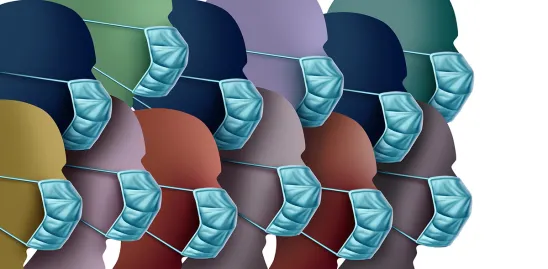As part of the federal government’s response to the global spread of novel coronavirus (COVID-19), the U.S. Environmental Protection Agency (“EPA”) is activating a limited procedure that allows eligible disinfectant product manufacturers to publicly communicate certain efficacy claims against COVID-19. In its January 29, 2020 announcement, EPA confirmed that registrants with a pre-qualified “emerging viral pathogen designation” can now include a statement indicating efficacy “against viruses similar to COVID-19” and authorize use against the virus. The statement may be made in product technical literature distributed to health care facilities, physicians, nurses, and public health officials; non-label-related websites; consumer information services; and social media sites. The policy does not permit registrants to add the efficacy statement to product labels themselves.
On March 5, 2020, EPA released a list of registered disinfectant products currently approved for use against the COVD-19 virus under this guidance.
A. Background
Disinfectants, sanitizers, and other substances intended for use on objects and surfaces against microorganisms are considered antimicrobial pesticides and cannot be sold or distributed unless they are first registered by EPA under the Federal Fungicide, Insecticide, and Rodenticide Act (“FIFRA”). EPA considers antimicrobial pesticides intended to control microorganisms that pose a threat to human health to be “public health” products, and any claims for use against a specific public health pathogen must be supported by efficacy data reviewed by EPA.
However, when emerging viral pathogens like COVID-19 arise, few if any EPA-registered disinfectants usually specify use against them, and it can be very difficult for manufacturers to test and assess product efficacy in a timely manner in order to add these viruses to existing product registrations. Under the Pesticide Registration Improvement Extension Act of 2018 (“PRIA-4”), EPA’s review of a request to add a new use to an existing registered antimicrobial pesticide can take a year or more.
B. Emerging Viral Pathogen Designation
Accordingly, in August 2016, EPA developed a voluntary process for registrants of certain hospital, healthcare, or broad-spectrum disinfectant products to begin seeking advance authorization that would allow a registrant—in the event of a future human or animal disease outbreak caused by an emerging virus—to communicate that its product may be used against the emerging virus. For registered disinfectants meeting EPA’s criteria, the Agency created an opportunity at any time prior to an outbreak for manufacturers to obtain emerging viral pathogen designation.
Under this process, an eligible product registrant can submit a request to EPA for expedited 90-day (or “fast-track”) review under FIFRA sec. 3(c)(3)(B)(ii), or as a label amendment request under PRIA-4 (associated with a four-month review period). Under either scenario, the request must explain why the product meets EPA’s criteria for use against a particular viral pathogen group (i.e., enveloped viral pathogens; large, non-enveloped viral pathogens; or small, non-enveloped viral pathogens). Once approved by EPA, the designated statement is added to the product’s master label as a “non-label claim” and permitted only when EPA’s emerging viral pathogen conditions are met.
C. Product Claims Against COVID-19
Following EPA’s recent announcement, a pre-qualified registrant may now use the emerging viral pathogen statement in off-label communications to inform the public of its product’s efficacy against COVID-19. Note that EPA’s approval in individual cases may include additional terms and conditions further restricting how the designated statement may be communicated.
Importantly, EPA’s action applies only to registered disinfectants that have been pre-qualified under the 2016 process, and manufacturers and other stakeholders should expect EPA to closely monitor the use of COVID-19 claims in connection with all pesticide products. This includes unregistered pesticide products distributed under FIFRA’s “minimum risk” exemption, which prohibits any claims to control microorganisms that pose a threat to human health. If a purported minimum risk pesticide is labeled or marketed as effective against any such pathogen, it must be registered with EPA.
Similarly, EPA does not typically review efficacy data for pesticidal devices prior to their distribution or sale. Nevertheless, a device may be “misbranded”—and thus unlawful to be marketed—if its labeling or other marketing materials include general or specific efficacy claims that are “false or misleading in any particular.” Some devices, such as air purifiers, have been marketed as effective against coronavirus particles, and the producers or sellers of any such devices are responsible for ensuring that their products perform as claimed.





 />i
/>i
